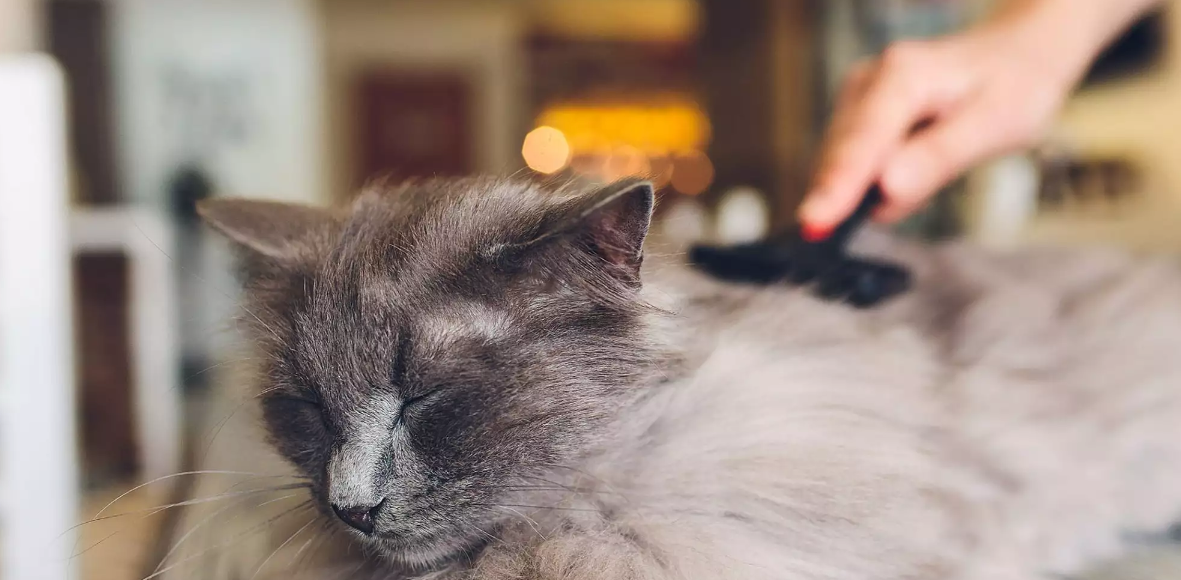The 7 Main Reasons Why Cats Lose Their Hair

If your feline friend seems to be losing hair at an alarming rate, you’ll want to understand why this might be happening, and how you can fix it if needed. There are many reasons why a cat may lose their hair, and the reasons will vary depending on the specific cat in question and the root cause of the problem itself. This article will go over some of the main reasons why cats lose their hair, as well as some tips you can use to stop it from happening or fix it if it already has started.
#1: Stress
Stress can cause cats lose their hair, but the good news is that a few simple changes to your cat’s lifestyle and diet will help them cope. The first thing you should do is get your cat checked by a veterinarian. Stress-related hair loss can also be caused by an underlying medical condition, like thyroid disease, diabetes, or kidney disease.
#2: Allergies
Cats can experience hair loss and skin irritations when they are suffering from allergies. An allergy is an overreaction of the immune system, usually to a substance that is ordinarily harmless. The most common allergens are dust, pollen, fungi, mites and danders from animals like cats and dogs.
In many cases allergies can be treated by removing the allergen or using medications.
#3: Anemia
Cats that are anemic will often have a low number of red blood cells, which can cause hair loss or thinning. Hemoglobin is the protein in red blood cells that carries oxygen to all of the parts of the body, including hair follicles and skin. When cats are anemic, they may feel lethargic, lose their appetite and sometimes even vomit.
#4: Worms
Worms are a common cause of hair loss in cats. Roundworms, tapeworms and whipworms are most often the culprits. Worm eggs are ingested by the cat when it eats an infected rodent or bird, for example. The worms then hatch inside the cat’s intestines and start to migrate through the body and live inside cells that line the intestinal walls. They can also be passed from mother to kitten during pregnancy or birth.
#5: Fleas
Fleas are a common cause of cats lose their hair. If your cat is scratching and biting themselves, they may be dealing with fleas. Flea bites can cause intense itching and dermatitis that leads to hair loss. In addition, fleas spread tapeworms which can lead to vomiting and diarrhea in your cat.
#6: Tumors (cancer)
Tumors, or cancer in cats, can lead to hair loss. This is usually because the tumor needs to be removed. If a cat has a tumor and it’s not bothering them, then the veterinarian may decide to just leave it alone. A veterinarian might remove a small tumor from a cat’s body if they think it is starting to affect the cat’s health.
#7: Other health issues
In some cases, hair loss in cats can be caused by a medical condition. If you notice that your cat’s coat is thinning and they are also lethargic, it could be a sign of another underlying health issue. Your vet will examine your cat to diagnose the cause of the problem and start treatment as soon as possible.
Conclusion
The word alopecia refers to hair loss, especially when it occurs in humans. Hair loss in cats isn’t exactly the same as in people, but there are still similarities between the two ailments. In order to deal with alopecia in cats, owners need to understand what they’re dealing with. And what they can do about it so that their cats can get better as quickly as possible and stay healthy in the future. When it comes to cats, hair loss can be caused by multiple factors. Including malnutrition and stress. But it could also be an indication of more serious medical problems.